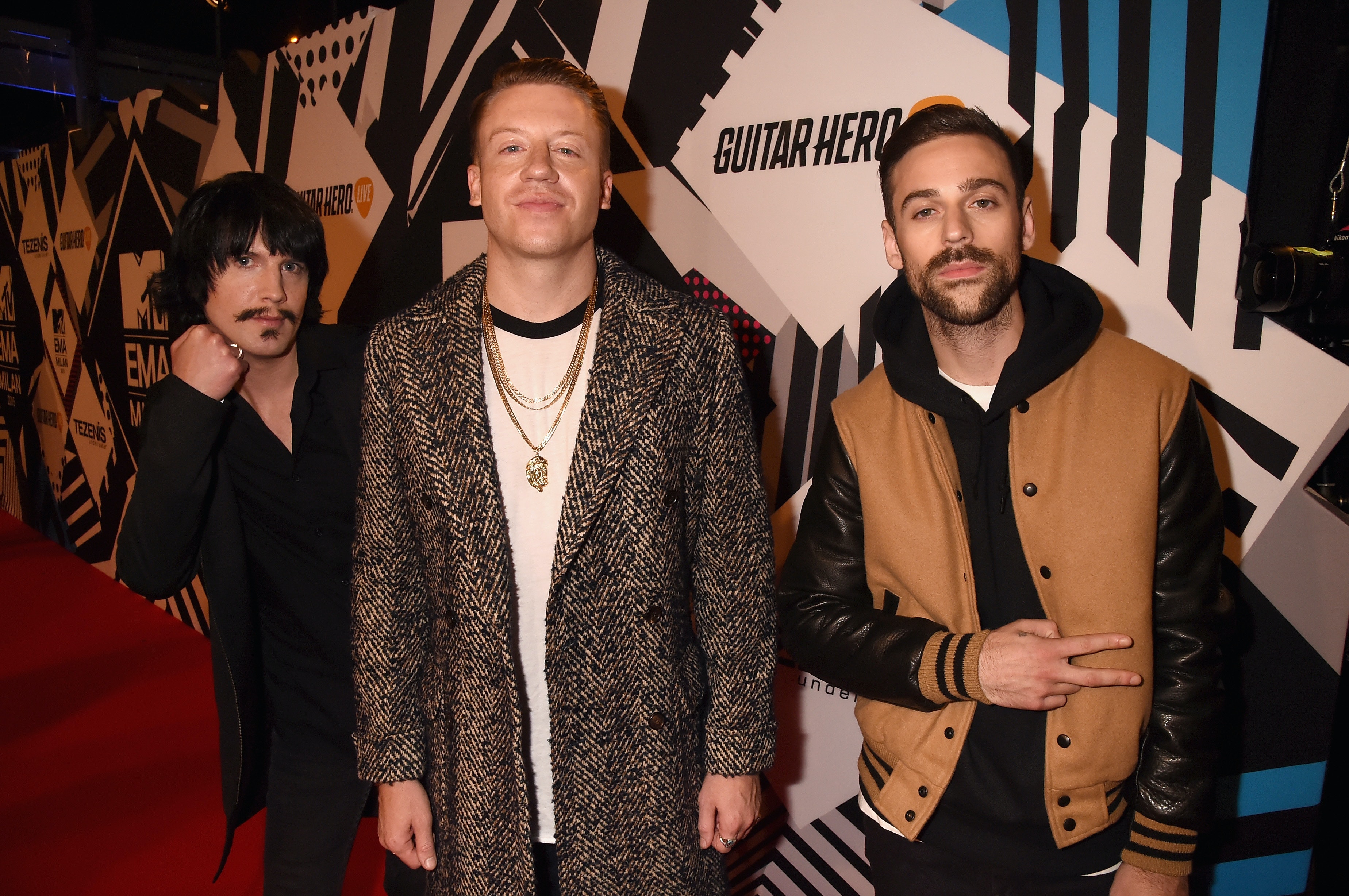 Jacquelyn Gray2 days ago What Do Macklemore's'White Privilege II Lyrics Mean? It's A Step In The Right Direction
Jacquelyn Gray2 days ago What Do Macklemore's'White Privilege II Lyrics Mean? It's A Step In The Right Direction
Macklemore's 'White Privilege II' tackles race
 Jacquelyn Gray2 days ago What Do Macklemore's'White Privilege II Lyrics Mean? It's A Step In The Right Direction
Jacquelyn Gray2 days ago What Do Macklemore's'White Privilege II Lyrics Mean? It's A Step In The Right Direction
David Chambers
|
26 January, 2016, 03:19
Recommended
- Broncos to play Panthers in Super Bowl 50
- Cheapest Super Bowl 50 ticket going for $3K right now
- Hillary Clinton Says Flint Water Crisis Is a 'Civil Rights Issue'
- Manning and Bronco defense beat Pats for trip to Super Bowl
- With Kerr back, National Basketball Association reviewing who will coach West All-Stars
- Patriots rookie JJ Worton arrested on assault charges
- Apps to Keep You Entertained During the Winter Storm
- Thomas Davis breaks right arm, vows to return for Super Bowl
- Police recommend charges against Seattle FB Derrick Coleman
- Can Tallgrass Energy Partners, LP (NYSE:TEP) Meet Street Expectations?
- Roma deal for El Shaarawy in final stages
- Protesting Sikh Forced Out of Trump's Rally
- Tennessee Couple Claim Winning Ticket For US Powerball Jackpot
- Who is performing at the Super Bowl 50 halftime show?
- Washington Senate passes charter school fix
Trending Now
Dont Miss
Popular destinations
- Best Non Gamstop Casino
- Non Gamstop Sites
- Casino Not On Gamstop
- Casino Not On Gamstop
- Casino Online Non Aams
- Non Gamstop Casinos
- Sites Not On Gamstop
- Non Gamstop Casinos Uk
- Sites Not On Gamstop
- Non Gamstop Betting Sites
- Best Online Casino Canada
- Online Casinos Not On Gamstop
- オンラインカジノ 一覧
- Mejores Paginas De Poker
- Gambling Sites Not On Gamstop
- Casinos Not On Gamstop
- UK Casinos Not On Gamstop
- Non Gamstop Casino Sites UK
- Slots Not On Gamstop
- UK Online Casinos Not On Gamstop
- UK Casino Not On Gamstop
- Meilleur Casino En Ligne France
- Meilleur Casino En Ligne
- Casino Not On Gamstop
- Bookmaker Not On Gamstop
- Casino Non Aams
- Meilleur Casino En Ligne Belgique
- Jeux Casino En Ligne
- Casino Online Esteri
- カジノ 仮想通貨
- Casino Live
- I Migliori Siti Poker Online
- Casino En Ligne Avis
- Migliori Casino Non Aams
- 코인카지노
- Casino En Ligne Français
- Nouveaux Casino En Ligne
- Casino En Ligne France
- Casino En Ligne France
